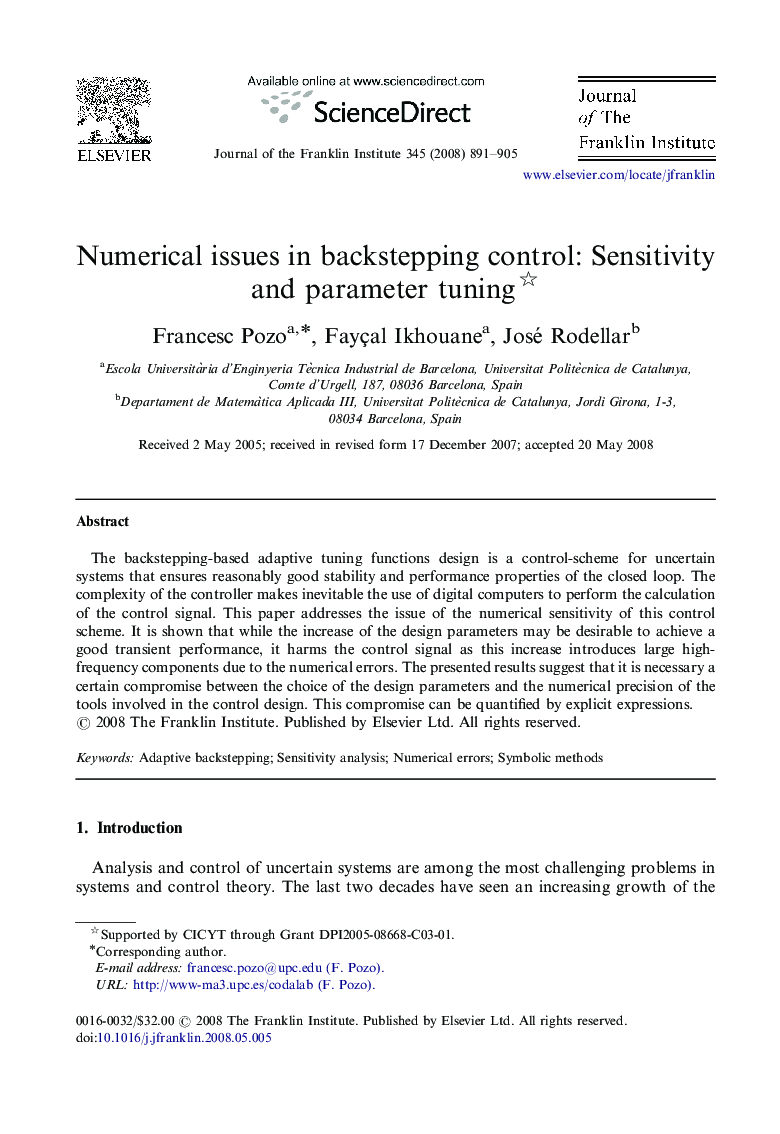| Article ID | Journal | Published Year | Pages | File Type |
|---|---|---|---|---|
| 4976393 | Journal of the Franklin Institute | 2008 | 15 Pages |
Abstract
The backstepping-based adaptive tuning functions design is a control-scheme for uncertain systems that ensures reasonably good stability and performance properties of the closed loop. The complexity of the controller makes inevitable the use of digital computers to perform the calculation of the control signal. This paper addresses the issue of the numerical sensitivity of this control scheme. It is shown that while the increase of the design parameters may be desirable to achieve a good transient performance, it harms the control signal as this increase introduces large high-frequency components due to the numerical errors. The presented results suggest that it is necessary a certain compromise between the choice of the design parameters and the numerical precision of the tools involved in the control design. This compromise can be quantified by explicit expressions.
Related Topics
Physical Sciences and Engineering
Computer Science
Signal Processing
Authors
Francesc Pozo, Fayçal Ikhouane, José Rodellar,
